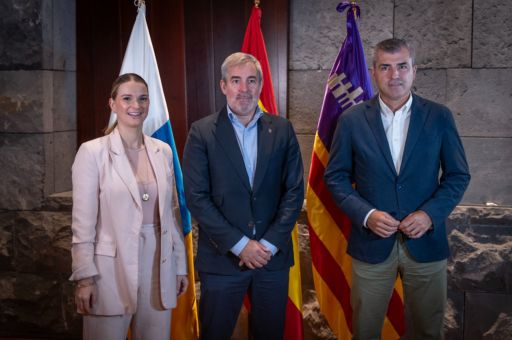The President has met with the head of the Canary Islands government to address the challenges and demands common to both island communities.
The President of the Government of the Balearic Islands, Margalida Prohens, has met with the President of the Canary Islands, Fernando Clavijo, to make a common front and call for a change in the Spanish government’s migration strategy.
Prohens travelled to Tenerife on Tuesday to discuss with the head of the Canary Islands’ government the main challenges and demands common to both island communities. One of the main issues was the migration crisis currently affecting both archipelagos. ‘We are still far from the migratory pressure figures of the Canary Islands, where there is a humanitarian drama of the first order that requires urgent responses, but, unfortunately, in recent years we have also been making rapid progress towards this situation’, the president said.
TDB keeps you informed. Follow us on Facebook, Twitter and Instagram
Prohens joins forces with the President of the Canary Islands to call for a change in the Spanish Government’s migration strategy
So far this year, more than 3,300 migrants have reached the coast of the Balearic Islands by boat, a figure 50% higher than that recorded for the whole of last year. Of these migrants, more than 400 are minors. This situation has led to an 850% overcrowding of the reception system, which depends on the island councils.
In this sense, Prohens focused on the need for a change in migration policy. ‘However’, she stressed, “if we only focus on talking about distribution, we will not reach a solution that lasts over time”.
‘The Spanish Government must compensate for our extra-peninsular reality -insular in our case-, as we are fragile and limited territories, with problems such as housing or the sustainability of our tourism. We cannot assume the responsibility of acting as the southern border of our country when migration is the exclusive competence of the state executive’, she stated.
At the meeting, Prohens and Clavijo discussed the challenge posed by the sustainability of the economic model of both communities, a model linked to the tourism sector. ‘Here too, working groups have been set up on the subject, and we agree on the possibility of sharing experiences, as well as on the need for the Spanish government to support a transformation of the model that will allow progress to be made towards sustainability,’ she added.
To conclude, both presidents also discussed the defence of the 75% discount on travel for residents, ‘a right of our fellow citizens, who must be compensated for their insularity’. They also referred to the need for the State Government to subject the airlines to greater vigilance, in order to ensure that this discount serves to reduce the prices paid by island residents.
